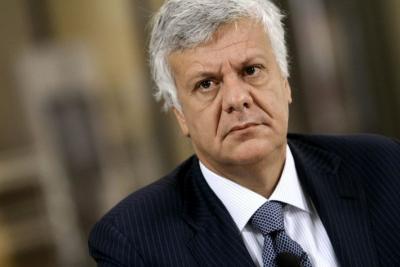Italy uncharacteristic opposition to Paris Climate deal

ROME -- Italy surprisingly put up a sly fight in the negotiations leading up to the ratification of the Paris climate deal Tuesday by the European Parliament, environmental sources said Wednesday.
The Italian government has always claimed to play a leading role in the green economy and in the use of renewable energy sources -- however in the negotiations that preceded the ratification of the 2016 Paris climate agreement at the European Parliament Tuesday, two countries in particular went against the popular current -- Poland and, surprisingly, Italy.
Although Warsaw is usually renowned for its favourable stance on fossil fuels, Italy’s position in the negotiations came as much more of a surprise when considering the country’s track record and its previous environmental declarations, ‘Il Fatto Quotidiano’ writes.
For example, Italian Prime Minister, Matteo Renzi, in the 2015 Cop21 Paris meeting had said that “Italy is a leading country in many sectors of the green economy. We are heading in the right direction and are making all the necessary efforts that can allow us to be a guiding nation in this sector.”
“I am optimistic, but the road is still a long one. I hope that the deal is the most binding it can be, otherwise we risk having our task inscribed in sand,” Renzi concluded.
Even the Italian Environment Minister Gian Luca Galletti had said a few days before the ratification in Paris that “we are making this deal easier on a European level as we have already strongly contributed, even over the last few years, to the reduction of CO2 in Europe.”
However, during the actual negotiations between nations, Italy strangely sought to make the deal blander in relation to reducing emissions. The Bel Paese instead pushed for “equity” in the division of tasks between countries, which in reality meant a push for lighter responsibilities for Renzi’s government.
Unlike Poland who openly proclaimed its right to coal-based industrial development, Italy was a lot slyer in its opposition to the ratification. Mauro Albizio, a ‘Legambiente’ representative from the Brussels office of this Italian environmentalist association explained that “Italy had already ratified the deal on a national level. They know that they will be able to put up a fight later on for softer targets, but meanwhile it was not convenient for them to go against the Paris deal.”
“It was a process carried out behind the scenes. No one is so politically ignorant as to openly say they do not want this deal to happen,” Albizio continued. Thus, the fight was fought during the technical discussions, when Italian negotiators were more than ready to create problems.
This attitude, for Luca Iacoboni from Greenpeace Italia, is not even justifiable in terms of the country’s geological characteristics -- “Italy, in contrast to Poland, is a country lacking in raw materials, so even due to this we should focus on renewables rather than on carbon. Also, Enel is even closing down 23 coal-fired plants.”
According to Albizio, “The hypothesis made by the Commission is that Italy should reduce its emissions by 33 percent by 2030, relative to 2005. This is a task already two thirds of the way completed, as from 2005 to 2014, thanks to the strong development of renewables, emissions fell by 22 percent. And now Italy judges the need to cut emissions by another 11 percent in 16 years too stifling...”
Italian Environment Minister Gian Luca Galletti easily 'justified' this attitude as an abstract “principle of equity.”
nkd


